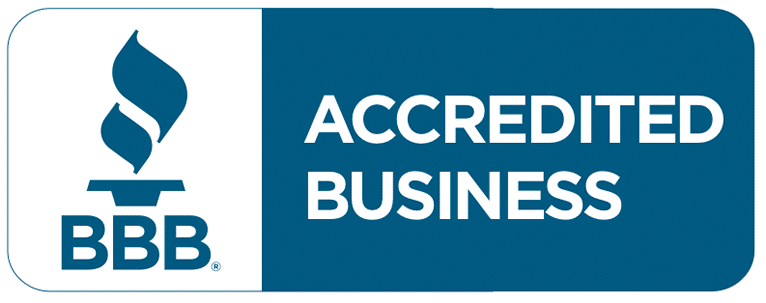A functional garage door is a crucial part of any home. It provides security, convenience, and protection for your vehicles and belongings. However, there may come a time when you encounter an issue with your garage door, such as it refusing to open. This can be frustrating and inconvenient, but fear not! In this comprehensive guide, we will explore the common reasons why a garage door won’t open and provide you with step-by-step troubleshooting solutions to get your door functioning properly once again.
Common Reasons Why a Garage Door Won’t Open
There are several common reasons why your garage door may refuse to open. It’s important to identify the cause before attempting any repairs. Here are a few possibilities to consider:
Checking the Power Source
Before diving into complex troubleshooting, it’s essential to ensure that your garage door opener is receiving power. Start by checking if the opener is plugged in and the outlet is functioning. If you find that the power source is working correctly, move on to inspecting the opener itself.
Inspecting the Garage Door Opener
The garage door opener is the motorized device responsible for opening and closing your garage door. If it malfunctions, your door may refuse to open. Begin by examining the opener for any visible signs of damage or loose connections. Inspect the wiring, circuit board, and motor components. If you notice any issues, consult the manufacturer’s manual for troubleshooting steps or contact a professional.
Testing the Garage Door Remote
If you’ve confirmed that the opener is in good working condition, the next step is to test the garage door remote. Replace the batteries if needed and ensure that the remote is within range of the opener. If the remote still fails to open the door, try reprogramming it. Refer to the manufacturer’s instructions for the proper reprogramming procedure.
Troubleshooting the Garage Door Sensors
Garage door sensors are safety features designed to prevent the door from closing if an object or person is detected in its path. These sensors can sometimes become misaligned or covered in dirt, causing the door to malfunction. Inspect the sensor’s alignment and clean any debris that may be obstructing the sensors. If necessary, adjust the sensors according to the manufacturer’s instructions.
Examining the Garage Door Springs
Garage door springs play a crucial role in the door’s operation. If a spring breaks or becomes worn, it can prevent the door from opening. Inspect the springs for any signs of damage, such as rust or deformation. If you notice any issues, it’s best to contact a professional to replace the springs, as they are under high tension and can be dangerous to handle without proper knowledge and tools.
Lubricating the Garage Door Tracks and Rollers
Over time, the garage door tracks and rollers can accumulate dirt and debris, hindering smooth operation. Apply a silicone-based lubricant to the tracks and rollers to reduce friction and ensure smooth movement. Be sure to clean the tracks beforehand to remove any buildup that may hinder the lubricant’s effectiveness.
Adjusting the Garage Door Limit Settings
Garage doors are equipped with limit settings to determine the door’s open and close positions. If these settings are misaligned, the door may not open or close fully. Consult the manufacturer’s manual for instructions on how to adjust the limit settings. Make small adjustments until the door opens and closes smoothly.

Calling a Professional for Help
Recognizing the Problem
If you find yourself in a situation where your garage door won’t open despite trying various troubleshooting methods, it’s essential to recognize the problem. A malfunctioning garage door can stem from various issues, including faulty springs, cables, or other components.
Exhausted Troubleshooting Steps
After attempting basic troubleshooting steps such as checking the power source, examining the remote control, or inspecting for any obstructions in the door’s path, and still, your garage door remains stubbornly closed, it’s time to consider seeking professional help.
Time to Call a Professional
Calling a professional garage door technician becomes necessary when DIY efforts fail to resolve the issue. These technicians possess the expertise, knowledge, and specialized tools required to diagnose and fix complex garage door problems effectively.
Expertise and Specialized Tools
Garage door technicians are equipped to handle various issues, including those involving springs, cables, and other intricate components. They understand the mechanisms of garage doors and can identify underlying problems accurately.
Safety Concerns
Attempting to repair garage door issues without proper knowledge and tools can pose safety hazards. Springs, in particular, can be under high tension and may cause injury if mishandled. By calling a professional, you ensure the safety of yourself and others.
Trusted Garage Door Service Providers
When seeking professional assistance, it’s crucial to contact a reputable garage door service provider. Look for companies with a track record of reliability, positive customer reviews, and appropriate certifications.
Conclusion: Maintaining a Functional Garage Door
A garage door that won’t open can be a frustrating problem to deal with. However, with the troubleshooting steps outlined in this guide, you can identify and resolve many common issues on your own. Remember to check the power source, inspect the opener, test the remote, troubleshoot the sensors, examine the springs, lubricate the tracks and rollers, and adjust the limit settings.
If all else fails, don’t hesitate to contact a professional for help. By maintaining your garage door regularly and addressing issues promptly, you can ensure that it remains functional and reliable for years to come.
If you require professional assistance with troubleshooting and fixing your garage door, Veterans Garage Door Service is here to help. Our team of experienced technicians has the expertise to handle a wide range of garage door issues. From simple repairs to complex installations, we are committed to providing high-quality service and customer satisfaction. Contact us today for all your garage door needs in Lake County.
Frequently Asked Questions
Q: How often should I lubricate my garage door tracks and rollers?
A: It is recommended to lubricate your garage door tracks and rollers at least twice a year. However, if you live in an area with extreme weather conditions or your door is frequently used, more frequent lubrication may be necessary.
Q: Can I replace garage door springs myself?
A: Garage door springs are under high tension and can be dangerous to replace without proper knowledge and tools. It is recommended to seek professional assistance for spring replacement to ensure safety and proper installation.
Q: Why is it important to maintain a functional garage door?
A: A functional garage door provides security for your home and belongings, convenience for entering and exiting your garage, and protection against the elements. Regular maintenance and prompt repairs help extend the lifespan of your garage door and prevent costly issues in the future.
Q: How long does it take to fix a garage door that won’t open?
A: The time required to fix a garage door that won’t open depends on the cause of the issue and the complexity of the repair. Simple troubleshooting steps can be done within a few minutes, while more complex issues may take several hours or require professional assistance.
Q: How can I prevent my garage door from getting stuck in the future?
A: Regular maintenance, such as lubricating the tracks and rollers, checking for loose connections, and inspecting the springs, can help prevent issues that may cause your garage door to get stuck. Additionally, avoid placing objects in the door’s path and ensure that the sensors are clean and properly aligned.
















